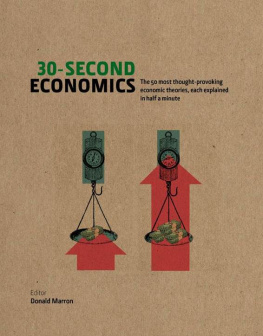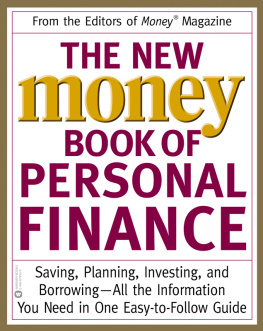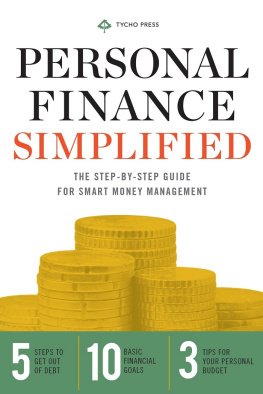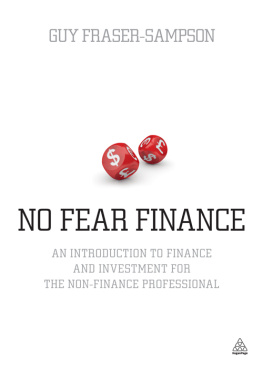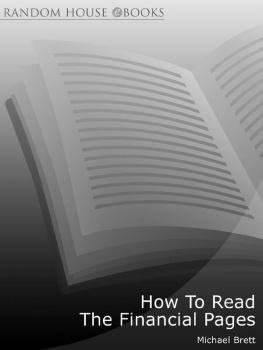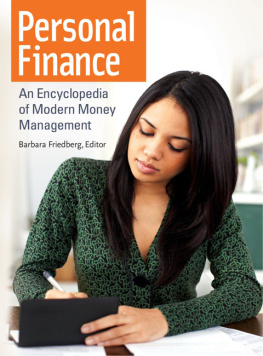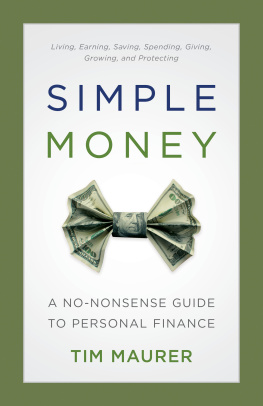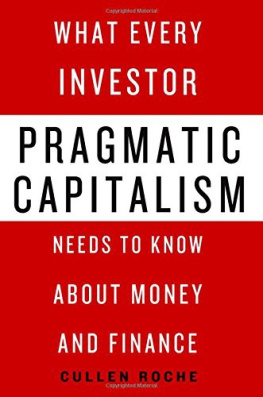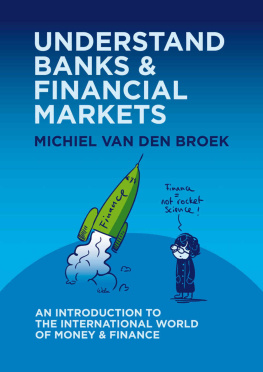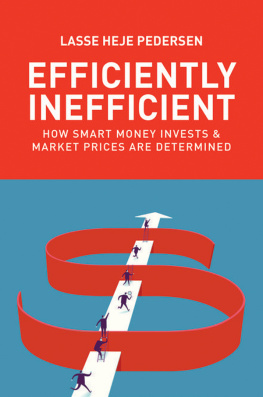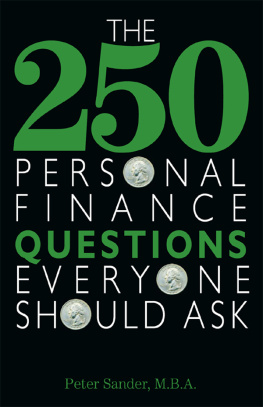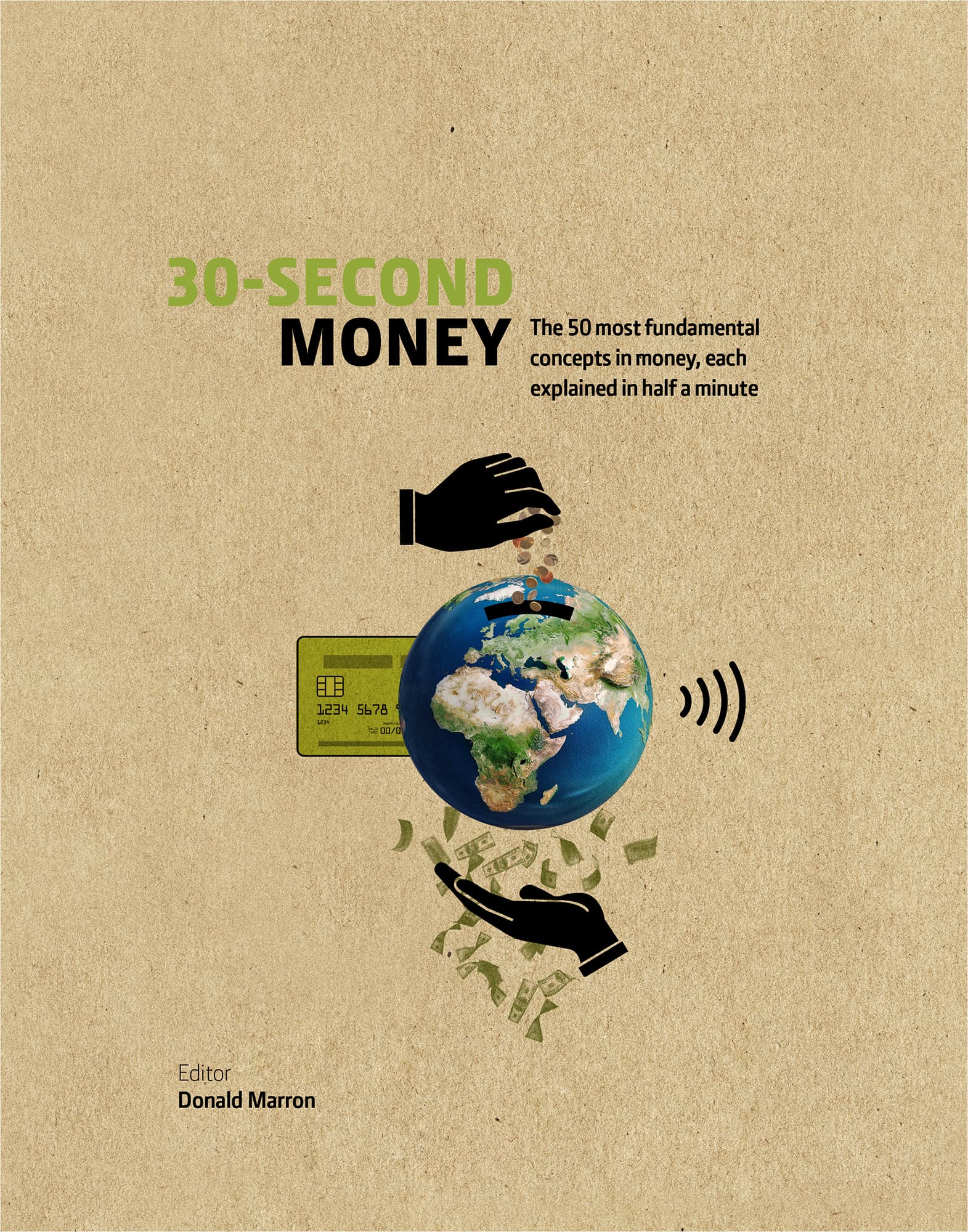Money makes the economic world go around. Just as your health depends on the flow of your blood, prosperity relies on the circulation of money. It helps you buy the goods and services you need and helps you sell the talents and things you have. When a baker needs to get his car fixed, he doesnt ask the mechanic how many cakes it will cost or whether she prefers chocolate or lemon. Instead, he simply pays her in their common currency.
From the coins of ancient Greece to the online transactions of today, money has facilitated exchanges of goods and services.
Money makes it easy for buyers and sellers to strike mutually beneficial trades whether bakers, mechanics, lawyers or writers, they can easily transact with a single, shared medium of exchange. The possibilities expand dramatically when money flows through financial markets. Money doesnt just help you get a cake today. It helps you save for a home, for your retirement, or for a rainy day. It lets you borrow to buy a car, improve your house, or start your own business. It lets you invest in businesses across the street and around the world, and it helps those businesses develop new products, open new establishments, and create new jobs. Money also helps governments finance public services and investments. And it helps people, businesses and governments manage many of the risks that life throws at them.
Of course, money also has its dark side. Money may not literally be the root of all evil, but it certainly attracts those looking to make an undeserved buck, quid or kwai. Shady operators prey on the unwary. Dreams of riches or fear of missing out can drive even the well-informed to make costly mistakes. Complicated financial products can confuse or deceive their users. And market players may fool themselves about how well they can really master our complex, interconnected financial system. As the Global Financial Crisis showed, even the wizards of Wall Street may not understand how their financial creations really work.
Everyone is a player in the game of money and finance, from the global hedge fund manager tracking every move in the markets to the shopkeeper whose customers pay in cash or credit, to the retiree who fears inflation may erode her savings. To help you win that game or at least survive it 30-Second Money introduces 50 of the top concepts in money and finance. Each entry includes a 30-second statement of the main issues, a 3-second payment summarizing the main point of interest, and a 3-minute investment for a deeper or more speculative dive.
The value of shares on the stock market reflects a companys performance and investors confidence.
The first chapter explores the Monetary System what money is, where it comes from, and who creates and controls it. The second chapter then dives into Investing, building from stocks and bonds to mutual funds and derivatives. The third chapter looks at Borrowing from the credit card in your wallet to microfinance institutions in emerging economies. Limiting losses is at least as important to financial success as making gains, so the fourth chapter explores Risk and Risk Management. Tools like insurance, hedging and diversification can help you manage your downside. The fifth chapter identifies key Institutions and Players you should know, from exchanges where stocks trade to the financial regulators who try with varying success to keep you safe. The sixth chapter digs deeper on seven Basic Concepts for understanding the world of money and finance. These include the amazing power of compound interest, the importance of liquidity, and the risks and rewards of leverage. The final chapter then highlights what happens When Things Go Wrong. Finance and money can be and often are forces for good. But they also attract the malicious, the ignorant and the unlucky. There are many dangers to avoid, from bank runs to hyperinflation to bubbles and crashes. Each chapter also profiles an important figure from the colourful history of money and finance, from Charles Ponzi, mastermind of historys most infamous financial fraud, to John Bogle, who democratized the world of mutual fund investing.
How can you maximize your return from this book? Each entry contains a wealth of information. So invest in whichever look like the most profitable reads. And then diversify across the other entries to build up your portfolio. The game is on.
Businesses require investment to grow and develop new products.

THE MONETARY SYSTEM
THE MONETARY SYSTEM
GLOSSARY
appreciation and depreciation A currency appreciates when it increases in value in comparison with other currencies. A currency depreciates when it decreases in value.
blockchain technology The technology that enables cryptocurrencies to operate. It involves global networks of computers constantly updating the transactions in the currencys digital ledger.
Bretton Woods System A system of monetary and exchange rate management in which participating countries agreed to mutually fix their exchange rates and to intervene, when necessary, to maintain those rates. The original agreement was made at Bretton Woods, New Hampshire, in July 1944. The system failed in the early 1970s after the United States and other countries moved to floating exchange rates.
cryptocurrency A virtual or digital currency usually with no central control. Cryptography is used to make the transactions secure.
equity The net worth of an individual or company, equal to their assets minus any debts. Also refers to owning stock in a company.


